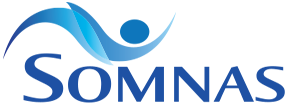EFFECTS OF TECHNOLOGY ON SLEEP
- Imtiaz Ahmad MD, MPH, FCCP
- Updated on: December 7, 2024
- Sleep & Health, Sleep & Lifestyle, Sleep Tools, Uncategorized

Table of Contents
KEY POINTS
The American Academy of Sleep Medicine recommends adults should sleep 7 or more hours per night, and teens should sleep 8 to 10 hours nightly.
Using electronic devices at night has been linked to delayed bedtime, shorter sleep duration, poor sleep quality, and daytime sleepiness.
Insufficient sleep in teens and adults can lead to serious health problems.
Sleep experts encourage you to shut off all electronic devices before bedtime.
Frequent awakenings from phone notifications can lead to daytime sleepiness and drowsy driving, especially in teens and young adults.
Am I at Risk ?
GENERAL OVERVIEW
- Increase the time it takes to fall asleep
- Reduce the duration of your sleep
- Cause you to wake up more frequently during the night
The bright light emitted by the screens of many electronic devices also can disrupt your sleep. This light can be especially intense when a device such as a tablet or smartphone is held close to your eyes. Light is a powerful timing cue that helps your body regulate your sleep-wake pattern.
Testing At Home
Tips For Better Sleeping
Turn off all electronic devices at least a half-hour before bedtime.
Keep the TV and other electronic devices out of your bedroom.
Charge portable devices outside of the bedroom at night.
Use one of the apps for your computer, tablet and smartphone that filters blue light after sunset.
Parents should set a technology curfew for children and teens so that they avoid exposure to devices or screens for 1 hour before bedtime.
Next Steps
- Make it a priority to sleep 7 or more hours nightly, or 8 to 10 hours if you are a teen.
- Talk to your sleep doctor about any ongoing sleep problems.
- Limit your use of electronic devices at night.
- Your doctor may refer you to an accredited sleep center for help.

QUESTIONS ABOUT A SLEEP ISSUE? LET’S TALK.
Imtiaz Ahmad, MD, MPH, FCCP
Dr. Imtiaz Ahmad is a highly qualified physician, Board Certified in Pulmonary and Sleep Medicine. He has received advanced training from some of the most prestigious institutions, including Harvard University, Cornell University, State University of New York at Brooklyn, and the University of Mississippi. SOMNAS is a medical facility that is committed to improving and maintaining the health of patients with sleep disorders. The expert team at SOMNAS is known for their compassionate and high-quality care. They offer unparalleled treatment and care to patients on the Gulf Coast of Florida, ensuring a better and healthier life for them.
Job Title: Board Certified in Pulmonary Medicine

